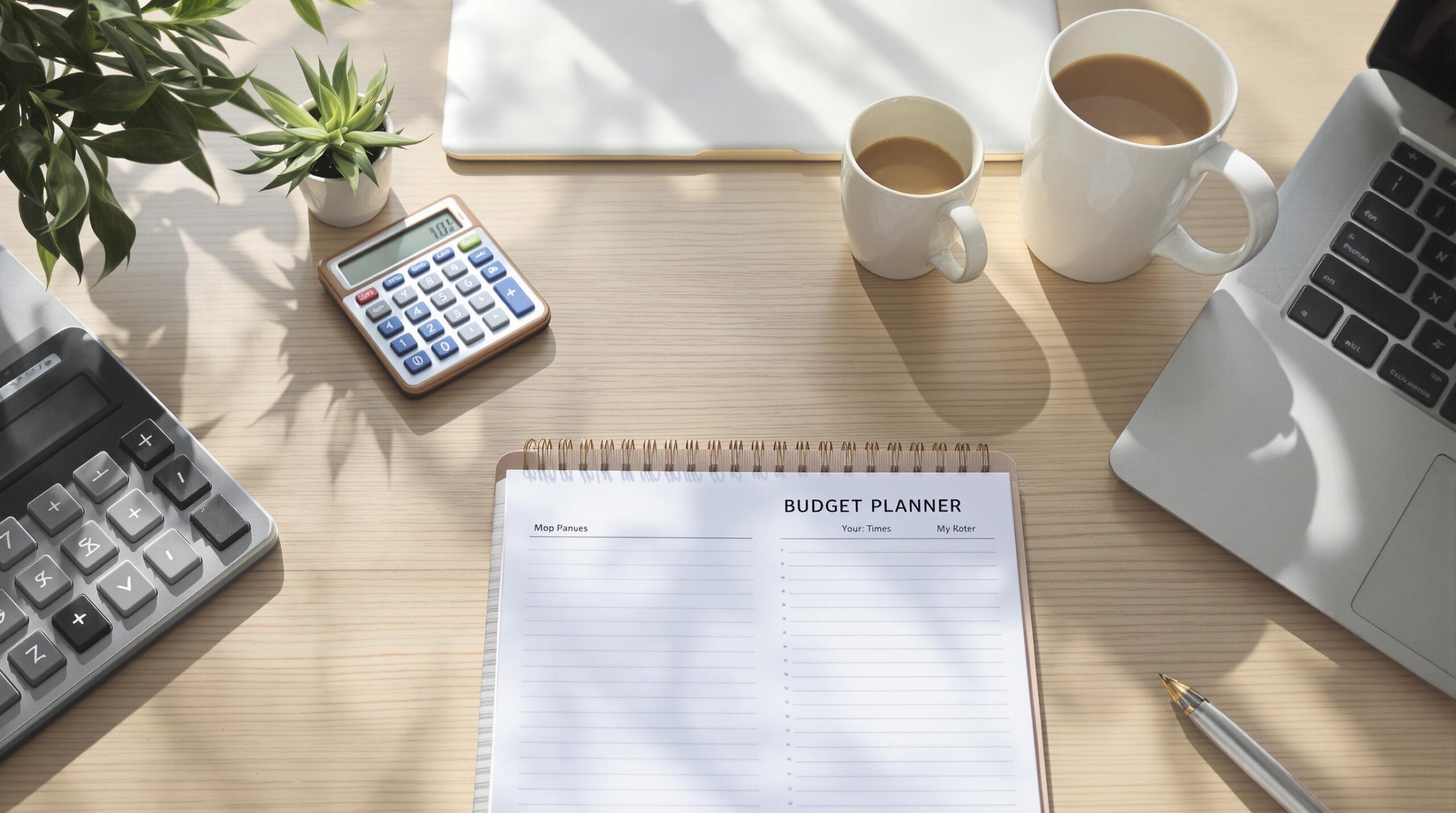Creating a minimalist budget is a strategic approach to streamlining finances, reducing unnecessary expenses, and focusing on savings. Individuals can achieve substantial financial peace and growth by prioritizing essential needs over wants. This article delves into the methods and advantages of crafting a minimalist budget and aims to assist readers in maximizing their savings potential.
Understanding Minimalism in Budgeting
Minimalism in budgeting emphasizes simplicity, intentionality, and efficiency. It involves eliminating financial clutter and concentrating on essential expenses. This budgeting approach aligns with the minimalist philosophy of living with less to gain more value and purpose from life. By applying these principles, you can reduce financial stress and focus on building a robust savings portfolio.
Steps to Create a Minimalist Budget
1. Evaluate Your Financial Situation
Begin by thoroughly assessing your current financial situation. Take stock of your income, expenses, debts, and savings. Understand your money coming in and going out. This process will highlight areas where spending might be unnecessarily high or misaligned with your financial goals.
2. Identify Needs versus Wants
Discerning needs from wants is critical in minimalist budgeting. Needs are expenses essential for survival, such as housing, food, and healthcare. Wants, on the other hand, are non-essential expenses, like dining out and entertainment. Prioritizing needs ensures that your spending aligns with your fundamental essentials, freeing up resources for savings.
3. Set Clear Financial Goals
Having clear financial goals provides purpose and direction for your budget. Goals could include saving for emergencies, retirement, or a significant purchase. Defining short-term and long-term goals will assist in maintaining focus and motivation. Setting achievable goals helps foster a sense of accomplishment, further encouraging disciplined budgeting.
4. Limit and Reduce Expenses
To maximize savings, it’s essential to trim down on expenses. Begin by reducing or eliminating discretionary spending. Look for alternatives or negotiate better deals to lower fixed expenses. Consider lifestyle changes, such as opting for homemade meals instead of dining out, to increase your savings rate.
Benefits of a Minimalist Budget
Enhanced Financial Clarity
A minimalist budget provides clarity on where your money goes each month. It simplifies financial management and enhances understanding. Awareness of spending patterns allows for better financial decisions and adjustments over time. Consequently, this clarity empowers you to allocate funds more effectively toward savings.
Improved Savings Ability
With fewer expenses, more income can be directed to savings accounts. A minimalist budget optimizes resource allocation to boost your saving potential significantly. Over time, even small reductions in spending can accumulate substantial savings. This approach lays a solid foundation for financial security and future wealth building.
Reduced Financial Stress
By simplifying your financial commitments, a minimalist budget can significantly reduce stress. Less complexity means fewer bills and financial obligations to worry about. This stress reduction promotes mental well-being, allowing a greater focus on long-term financial planning and investments.
Greater Financial Freedom
Eliminating cluttered finances enhances financial freedom by allowing quicker responses to opportunities or emergencies. Having savings offers more choices, whether that involves investing, traveling, or pursuing passions. Financial independence provides a cushion that allows you to enjoy life without being burdened by money concerns.
Transitioning to a Minimalist Budget
Start Small and Progressively
Transitioning to a minimalist budget can initially seem overwhelming. To ease this process, implement gradual changes rather than overhauling your entire budget at once. Transitioning in small, manageable steps helps build habits that encourage sustainable budgeting practices over the long term.
Concentrate on Essential Expenses
Concentrate your spending on absolute necessities to maximize savings effectiveness. Ensure that essential expenses are optimally aligned with your income and financial aspirations. Consistently revisiting and reallocating resources toward needs rather than wants strengthens your minimalist budgeting approach.
Use Budgeting Tools
Various tools are available to assist in creating and managing a minimalist budget. Applications and software can automatically track expenses, visualize spending patterns, and suggest improvements. Utilizing such tools simplifies the budgeting process and supports executing your financial strategies.
Review and Adjust Regularly
A budget shouldn’t be static; it requires periodic review and adjustment based on your circumstances and goals. Regular checks help identify areas where you may need to cut back further or where you can afford to spend more. Being flexible with your budget ensures that it remains an effective tool in maximizing your savings.
Common Challenges in Maintaining a Minimalist Budget
Resisting Temptation
Social influences and external pressures can challenge your minimalist budgeting efforts. Distractions like sales promotions can tempt you to deviate from your budget. Developing the discipline to resist these temptations and focus on your financial goals is crucial.
Balancing Frugality with Enjoyment
Another key challenge is balancing savings with life’s enjoyment. While it is essential to focus on savings, leaving room for enjoyment is equally important. This balance ensures that the minimalist approach remains sustainable and doesn’t lead to unnecessary deprivation.
Engaging in Continuous Learning
Financial literacy is essential for effectively maintaining a minimalist budget. Stay informed about personal finance topics to make knowledge-driven decisions. Learning about financial markets, investment opportunities, and economic trends can offer insights that boost your financial acumen.
Conclusion
Adopting a minimalist budget can help individuals achieve significant control over their financial destiny. This approach streamlines financial commitments, maximizes savings potential, and facilitates a stress-free financial life. Through consistent evaluation, adaptation, and disciplined execution, a minimalist budget can offer both immediate and future rewards. Embracing minimalism in budgeting enhances financial health and enriches overall quality of life.

